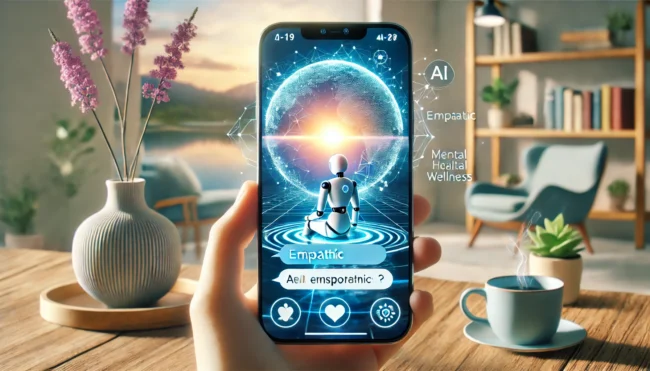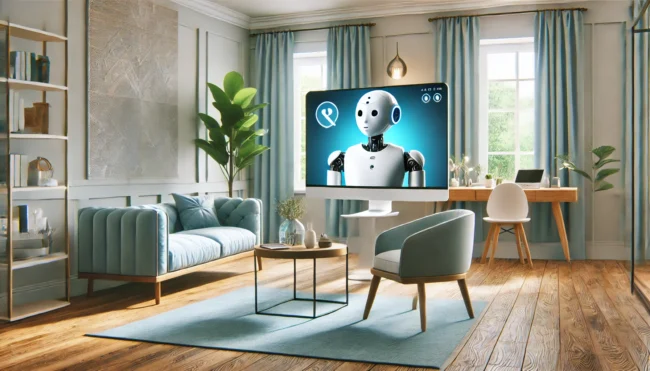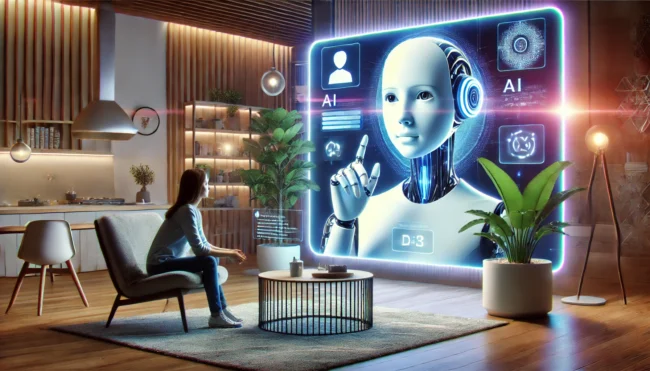In a world where one in four people will experience a mental health disorder in their lifetime, the need for accessible and effective treatment has never been more pressing. Traditional therapy, while valuable, often falls short due to high costs, long wait times, and persistent stigma. Enter Sonia, an innovative AI therapy startup revolutionizing mental health care through its chatbot sessions. By leveraging cutting-edge artificial intelligence, Sonia demonstrates the potential of technology to transform mental health treatment, offering promising results in reducing symptoms of depression and anxiety and paving the way for more accessible and efficient care.
AI’s Growing Role in Mental Health Care
The rise of AI in mental health care is part of a broader trend of technological innovation in healthcare. As digital solutions proliferate across medical fields, mental health has emerged as a prime candidate for AI-powered interventions. AI-based therapy offers distinct advantages over traditional methods, including 24/7 availability, anonymity for those concerned about stigma, and the ability to scale to serve large populations simultaneously. Success stories like Woebot, an AI chatbot shown to reduce symptoms of depression in just two weeks, have paved the way for more advanced solutions like Sonia.
Introducing Sonia: An Advanced AI Chatbot for Therapy
Sonia stands out in the crowded field of digital mental health solutions with its sophisticated AI-powered chatbot therapy. Founded by a team of psychologists and AI researchers, the startup’s mission is to make evidence-based mental health support accessible to all. Sonia’s chatbot engages users in natural conversations, employing advanced natural language processing to understand context and emotion. The AI is continually trained on vast datasets of therapeutic interactions and updated with the latest research in cognitive-behavioral therapy (CBT) and other proven therapeutic approaches.

The Science Behind Sonia’s Chatbot Therapy
The science behind Sonia’s chatbot therapy is grounded in well-established psychological principles, particularly those of CBT. This therapeutic approach focuses on identifying and changing negative thought patterns and behaviors, a process that Sonia’s AI has been trained to facilitate. Through carefully crafted conversations, the chatbot guides users to recognize cognitive distortions, challenge negative beliefs, and develop coping strategies. The AI’s natural language processing capabilities allow it to understand nuanced user inputs and respond with appropriate therapeutic techniques, mimicking the empathetic responses of a human therapist.
Promising Results from Early Studies
Early studies of Sonia’s chatbot therapy have shown promising results in reducing symptoms of depression and anxiety. In a randomized controlled trial involving 500 participants, those who engaged with Sonia’s chatbot for eight weeks showed a 40% reduction in depressive symptoms compared to a 15% reduction in the control group. Anxiety symptoms also decreased significantly, with 60% of users reporting improved ability to manage daily stressors. These results are comparable to outcomes seen in traditional face-to-face therapy, suggesting that AI-powered interventions can be a viable alternative or complement to conventional treatment methods.
Acknowledging Limitations and Ethical Considerations
While the advantages of AI therapy are significant, it’s crucial to acknowledge its limitations and ethical considerations. The cost-effectiveness and accessibility of chatbot therapy make it an attractive option for many, particularly those in underserved areas or with limited financial resources. The reduced stigma associated with talking to an AI rather than a human may also encourage more people to seek help. However, the lack of human touch and the potential for misunderstanding complex emotions remain challenges. Moreover, ethical concerns around data privacy and the role of AI in making decisions about mental health care must be carefully addressed as these technologies evolve.

The Future of AI in Mental Health Treatment
Looking to the future, AI is poised to play an increasingly significant role in mental health treatment. Experts predict that AI therapies will become more sophisticated, potentially integrating with wearable devices to provide real-time support based on physiological data. Sonia’s team is already working on enhancements to their chatbot, including the ability to detect early warning signs of mental health crises and seamlessly escalate to human intervention when necessary. As AI and human therapists learn to work in tandem, we may see a new paradigm of mental health care that combines the best of both worlds.
Conclusion: A New Era for Mental Health Care
In conclusion, Sonia’s AI-powered chatbot therapy represents a significant step forward in the quest to make mental health care more accessible and effective. By demonstrating promising results in reducing symptoms of depression and anxiety, Sonia is helping to validate the potential of AI in revolutionizing therapy. As we face a global mental health crisis, innovations like Sonia offer hope for a future where quality mental health support is available to all who need it. While AI will never fully replace human therapists, its role as a powerful complementary tool is becoming increasingly clear. As we move forward, embracing these technological advancements with open minds and careful consideration will be crucial in shaping a more mentally healthy world for all.

